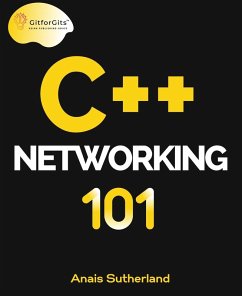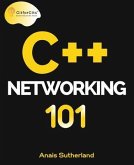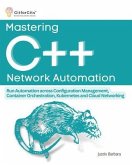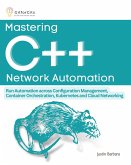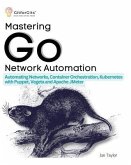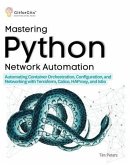The book then guides readers through Virtual Private Networks (VPNs), detailing their importance, functioning, and distinct types of VPNs. It explores wireless networking and asynchronous programming, providing clear illustrations of WiFi, Bluetooth, and Zigbee setup using C++. It covers critical wireless standards and security protocols. For a comprehensive understanding, the book illustrates network configuration management using C++ to automate crucial network operations tasks, thus highlighting the power of programming in network management.
Advanced topics include network testing and simulations, which provide insights into performance enhancement and network robustness. A detailed exploration of network monitoring enhances the reader's skillset, teaching ways to conduct fault, performance, security, and account monitoring. In the end, the book rounds up with network troubleshooting, elucidating several essential network troubleshooting tools and methodologies.
Key Learnings
- Understand TCP/IP model and protocols with hands-on C++ programming.
- Master TCP/UDP client-server connections and error handling.
- Grasp application layer protocols like HTTP/HTTPS, FTP, SMTP, IMAP, and DNS.
- Discover the importance and use of VPNs and how to set them up.
- Learn about wireless networking and asynchronous programming.
- Gain insights into network configuration management.
- Understand network testing methodologies and simulations.
- Learn to monitor various aspects of a network using Nagios.
- Learn about essential network troubleshooting tools and methodologies.
- Enhance network performance and reliability through C++ programming.
The essence of this book lies in its practical approach. With ample illustrations, code snippets, and hands-on exercises using C++, this book stands out as a definitive guide for anyone aiming to become a competent network administrator, equipped with the power of programming.
Table of Contents
- Introduction to Networking and C++
- Understanding Internet Protocols - TCP and UDP
- Network Interfaces and Addressing
- Application Layer Protocols
- VPNs
- Wireless Networks
- Asynchronous Programming
- Network Testing and Simulation
- Network Configuration and Management
- Network Monitoring
- Network Troubleshooting
Audience
This book is suitable for every computer programmer or computer science graduate with a basic understanding of C++. No prior networking knowledge is required. Familiarity with fundamental C++ concepts, such as variables, loops, and basic syntax, is assumed. By focusing on practical examples and clear explanations, this guide ensures a fast-paced learning experience.
Dieser Download kann aus rechtlichen Gründen nur mit Rechnungsadresse in A, B, CY, CZ, D, DK, EW, E, FIN, F, GR, H, IRL, I, LT, L, LR, M, NL, PL, P, R, S, SLO, SK ausgeliefert werden.

